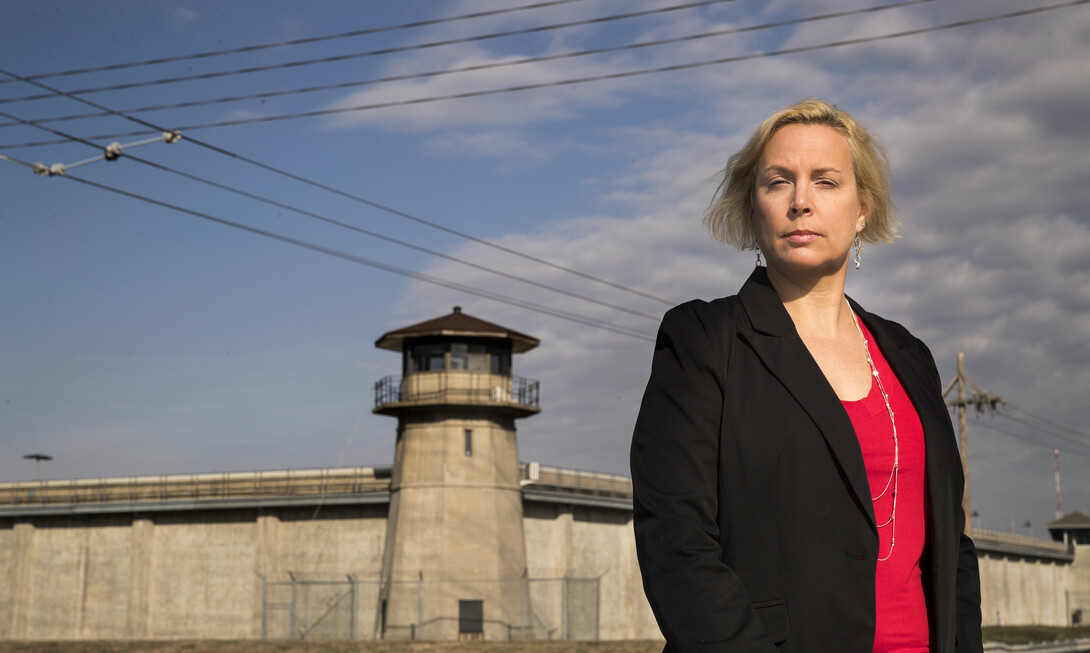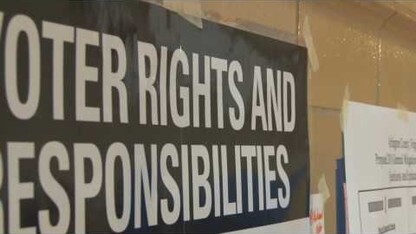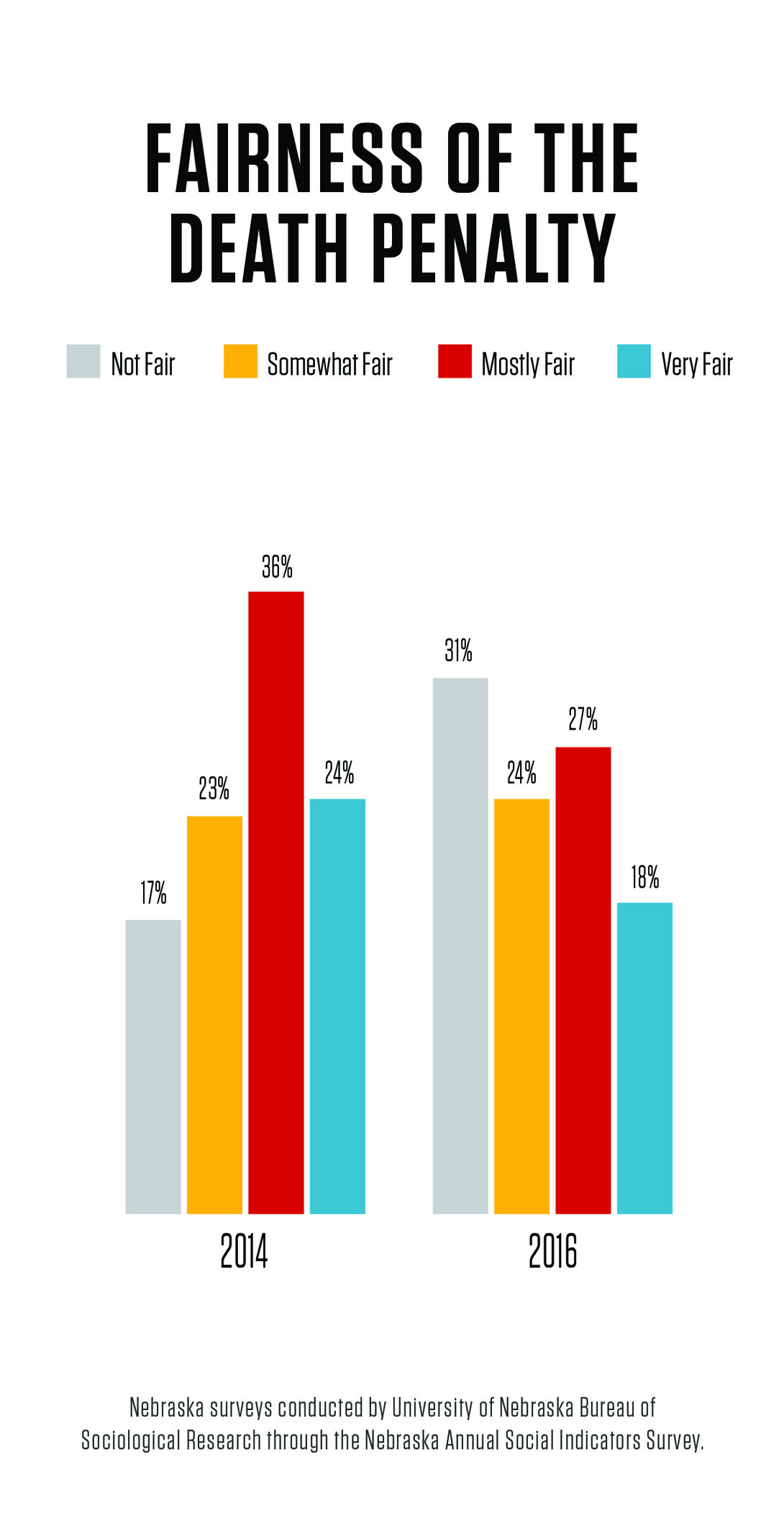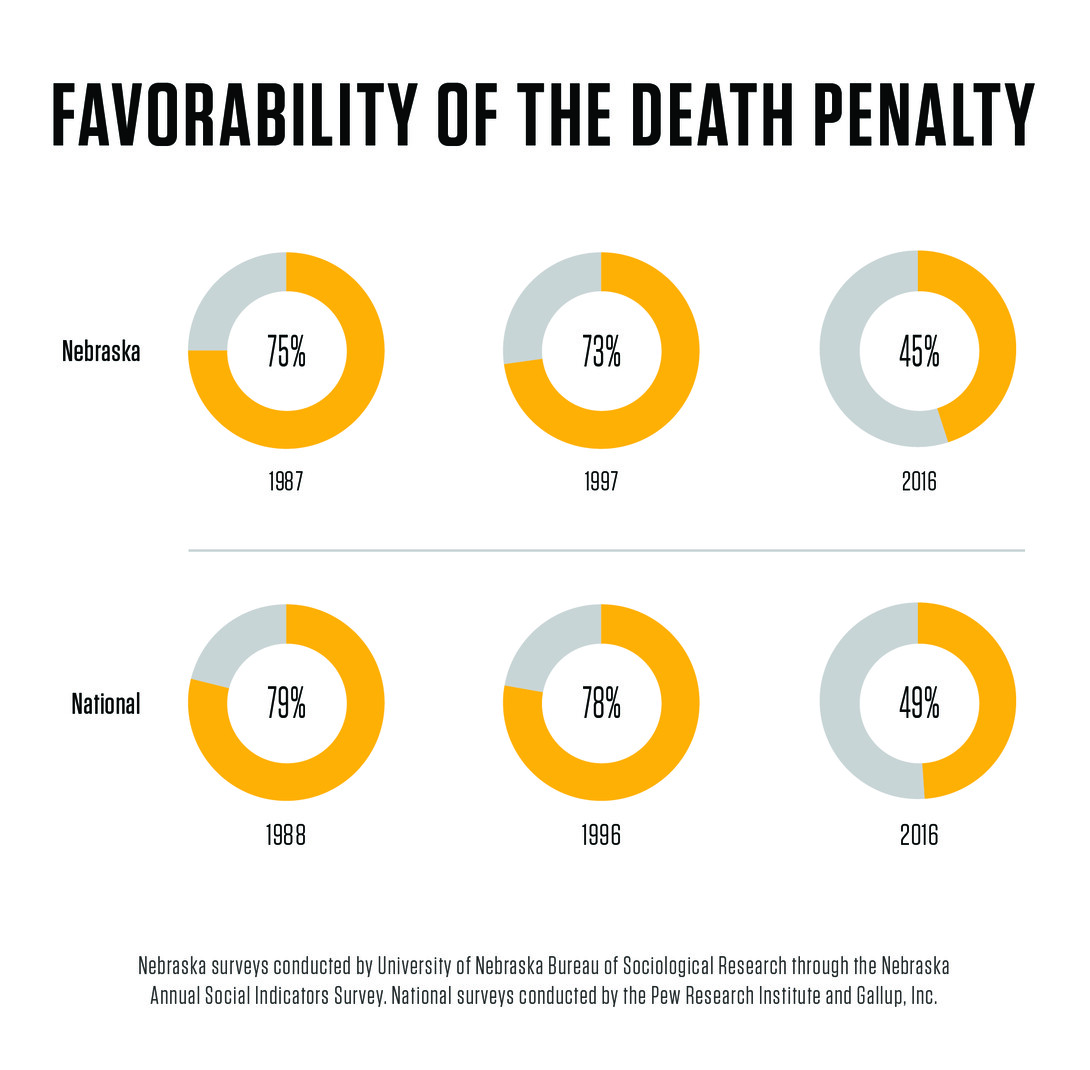
On Nov. 8, after a year of public debate, voters restored the death penalty in Nebraska. The results of the historic referendum not only nullified the Legislature’s 2015 act to abolish capital punishment, it also ran separate from a decade’s worth of evidence showing a decline in public support for state executions in Nebraska.
A University of Nebraska-Lincoln sociologist said that the long-term survey evidence of falling support for capital punishment and shifting attitudes about the fairness of the death penalty are worth exploring moving forward.
Social attitudes surveys conducted by the Nebraska Bureau of Sociological Research and compiled by Lisa Kort-Butler, associate professor of sociology, show that support for the death penalty has fallen from a high of 75 percent in 1987 to 45 percent in 2016.
When the Legislature abolished the death penalty in 2015, Kort-Butler culled more than 30 years of data from the Nebraska Annual Social Indicators Survey, to take a closer look at how and why Nebraskans’ view of the death penalty has changed.
[VIDEO]: Lisa Kort-Butler on social attitudes on the death penalty over time
The survey is sent to about 4,500 addresses each year, has a response rate of about 30 percent and a margin of error of about 4 percent. It is not an election poll, however, and does not seek out likely voters, Kort-Butler said.
“On surveys, we’re asking about general feelings, but we’re not asking how you’re voting,” she said.
Kort-Butler said that survey respondents’ support for the death penalty has been closely split when looking at the last 10 years of social-indicators survey data. According to preliminary data from the 2016 survey, 45 percent were in favor of the death penalty and 46 percent said they preferred life imprisonment. The 2016 survey was conducted from August to October and the data is still being finalized.
In 2015, 55 percent of survey respondents chose the death penalty over life imprisonment. In 2014, that number was 52 percent, and in 2011, 54 percent. In 2007, only 45 percent of survey respondents chose the death penalty as the best form of punishment for murder. In 1997, support for capital punishment was at 73 percent.
The findings within the Nebraska surveys mirror national surveys, which show 49 percent of U.S. citizens support the death penalty, according to the latest Pew Research Center poll.
When examining why attitudes toward the death penalty might be slowly shifting, Kort-Butler said a key factor in predicting support is whether or not respondents feel the death penalty is applied fairly. As more respondents believe the death penalty is not applied fairly, support for capital punishment tends to fall. In 2014, 17 percent of respondents said that the death penalty is “not fair at all.” In 2015, that number grew to 22 percent, and in 2016, 31 percent.
“As people have learned about exonerations, or disparities in race among those sentenced to death, it does affect how they think of this form of punishment,” Kort-Butler said.
So how did these elements fare on Election Day? Kort-Butler said opinions among the electorate may be shaped by current events, and that recent news concerning high-profile crimes in the state as voters mulled capital punishment may have helped cement favor for the death penalty on Nov. 8.
“We know from some of the older data … that how people use media influenced their opinions on the death penalty,” Kort-Butler said. “When people showed up to vote, they might have been tapping in to things they’d seen at the time.”
Kort-Butler also pointed to the 9 percent of respondents in the sociological research bureau’s most recent Nebraska survey who said they were undecided in their view about capital punishment. She said that group may be more malleable to changing their opinions.
“When they go into the voting booth, they can’t say ‘Unsure.’ They have to make a decision,” she said. “We need to explore this unsure group more to understand why the recent vote outcome pushed back at what national trends and our survey data said.”
Kort-Butler and graduate student Colleen Ray will further explore the subject in a 2017 study examining media usage, attitudes toward fairness and other impacts on how citizens perceive capital punishment. They presented their latest findings Nov. 17, at the American Society of Criminology annual meeting in New Orleans.
“It’s a moment for us to try to understand where people are coming from, how this change has occurred, and how they learn and think about (the death penalty),” she said.










